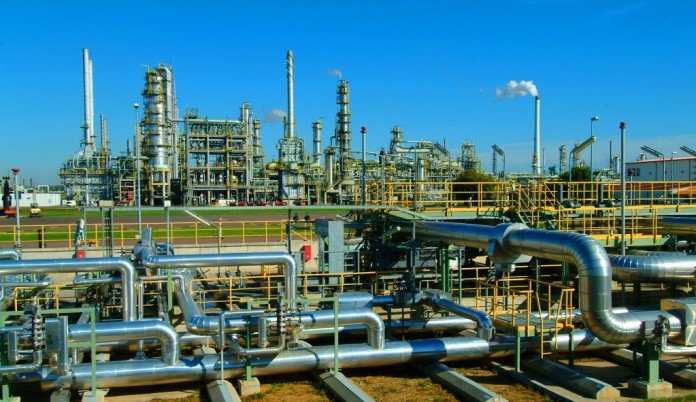The cumulative production by Port Harcourt and Warri refineries has hit seven million litres per day. Minister of State for Petroleum Resources and Group Managing Director of the Nigerian National Petroleum Corporation, Dr. Ibe Kachikwu, who declared this at the weekend, maintained that the Port Harcourt Refining Company now produces five (5) million litres of Premium Motor Spirit, otherwise known as petrol and the Warri Refining and Petrochemical Company also produces two (2) million litres of petrol per day.
This rise in production, he said, was in line with the Federal Government’s avowed commitment to clear the fuel queues rocking the country. The Minister, according to a statement by the Nigerian National Petroleum Corporation (NNPC), made this statement while re-commissioning the Bonny- Port Harcourt Refinery crude pipeline that has just been rehabilitated after being out of use for so many years due to incessant pipeline vandalism.
Kachikwu, the statement signed by Group General Manager, Group Public Affairs division of the NNPCC, Mallam Garbadeen Muhammed, stated that Kaduna Refining and Petrochemical Company is also scheduled to start production any moment from now, adding that the coming on stream of the three refineries will go a long way to ensure sufficient supply and distribution of petrol across the country.
He stated that the NNPC under his watch has been able to recover the two critical crude supply pipelines which were Escravos to Warri and Bonny to Port Harcourt crude supply pipelines, stressing that they were critical to the downstream sector of the industry.
“Port Harcourt is back in production, Warri is back in production. Kaduna as at today is receiving crude and will soon be back in production. Lagos is easing off now from fuel scarcity and Abuja is doing the same thing and once Kaduna begins production, the North will see a lot of improvement.”
He added that for the first time in many years, the three refineries are going to be working and it will help in a great deal with the issue of fuel supply and distribution across the country. He noted that the commercial governance model system was being introduced into the refineries, so as to keep them in business and to enable them compete favourably in the hydrocarbon value chain.






